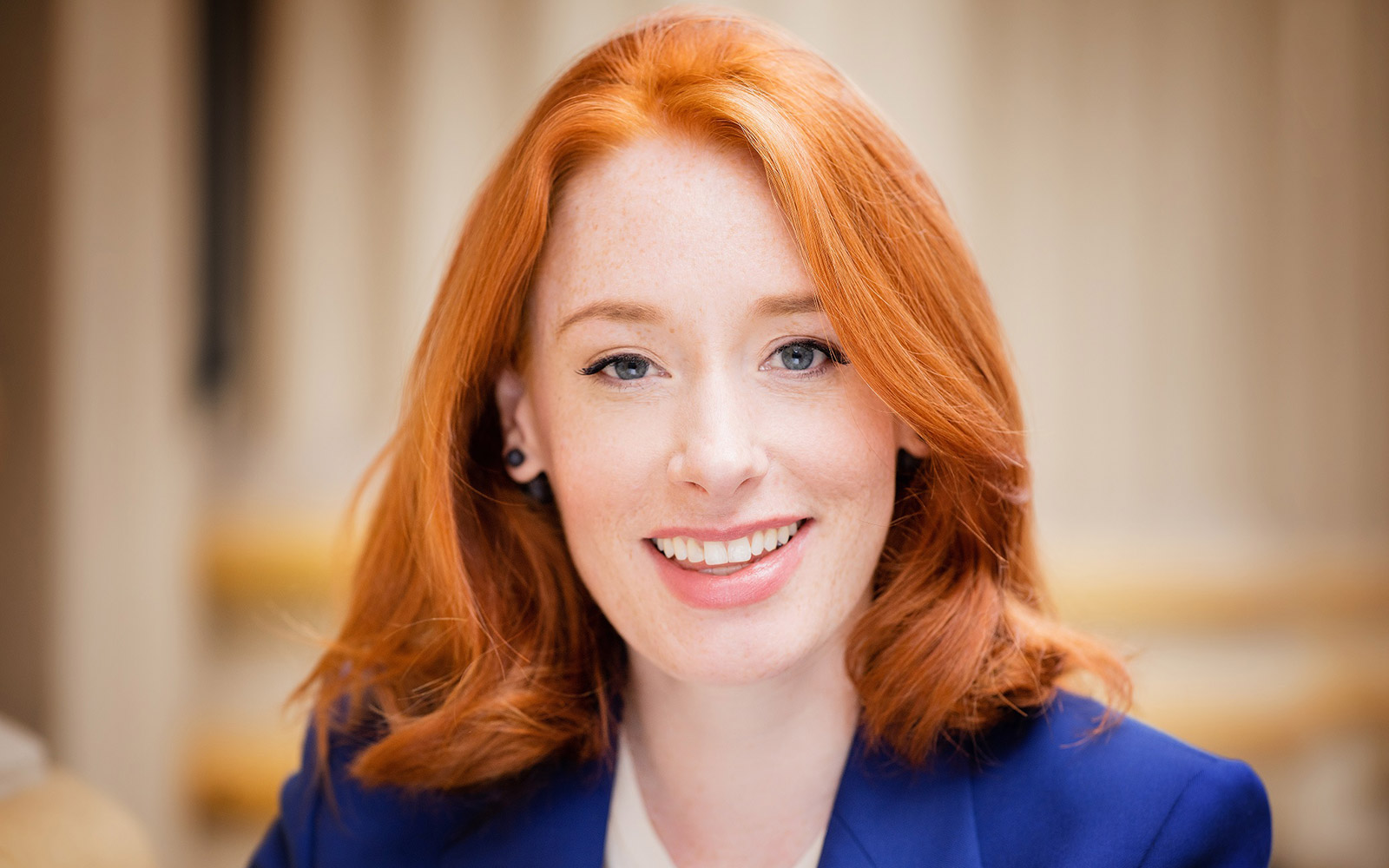Effective communication was vital during the pandemic, and expert voices were needed to help the public find their way through a jungle of complex and frightening information. To coincide with the October special issue of Significance, and the first International Day of Women in Statistics and Data Science, Elpida Vounzoulaki highlights the contributions and achievements of some of the women statisticians, epidemiologists, mathematicians and data scientists who helped us understand the impact of Covid-19. There are, of course, many more than we had room for - and we salute every one.
Dr Meaghan Kall
Dr Meaghan Kall is an epidemiologist working at the UK Health Security Agency. Throughout the pandemic, she had a leading role in generating data and producing technical briefing documents and reports to advance knowledge about the nature of the Covid-19 pandemic and the impact of the virus on the population. With her active role on social media, particularly Twitter, Dr Kall has been educating the public, explaining science and battling misinformation. In 2021 she made it onto Nature’s prestigious Nature’s 10 list of the ten people who helped shape science that year. Photo: Jessica Hallett/Nature
Dr Laure Wynants
Dr Laure Wynants is an assistant professor of epidemiology at Maastricht University and KU Leuven. Throughout the pandemic, she led a systematic review looking at prediction models for diagnosis and prognosis of Covid-19, aiming to inform clinicians and healthcare providers about the quality of available tools to use when making a decision. Dr Wynants is also a member of the steering group of COVID PRECISE, a consortium of clinical and prediction model experts across the world.
Dr Hannah Ritchie
Dr Hannah Ritchie is a senior researcher at the University of Oxford and the head of research at Our World in Data. Our World in Data is an online research publication involving thousands of researchers across the globe aiming to increase understanding about large problems the world is currently facing. During the pandemic, the work published by Dr Ritchie and her colleagues at Our World in Data has broadened our understanding about the Covid-19 pandemic including cases, testing, vaccinations and policy responses.
Dr Anne Cori
Dr Anne Cori is a senior lecturer in infectious disease modelling at Imperial College London. Dr Cori has developed a statistical package called EpiEstim which proved to be a valuable tool, being widely used by researchers looking to investigate virus transmission during the pandemic. Additionally, she has been working on projects looking at the efficacy of several interventions against Covid-19 and the ‘roadmap out of lockdown’, which helped shape policy-making.
Dr Natalie Dean
Dr Natalie Dean is an assistant professor of biostatistics at Emory University. Throughout the Covid-19 pandemic, Dr Dean has received international recognition, being one of the most active infectious disease experts in the media, translating evidence to the public, while at the same time working with the World Health Organisation to evaluate a coronavirus vaccine. Dr Dean has published several scientific commentaries in Nature, The New York Times and The Washington Post, has appeared on major television and radio programmes and has been recognised as a highly quoted scientific expert for Covid-19.
Dr Nadia Abuelezam
Dr Nadia Abuelezam is an associate professor at the Connell School of Nursing and an epidemiologist. With expertise in infectious disease, public health and health equity minority health, Dr Abuelezam carried out research investigating Covid-19 vaccine hesitancy as well as studies investigating the impact of health inequalities on health outcomes regarding Covid-19. With an active presence on the media, Dr Abuelezam has authored a number of articles communicating evidence about the pandemic to the public and discussing important topics including pandemic restrictions, testing and tracing, and retuning to normal once the pandemic is over.
Dr Georgia Salanti
Dr Georgia Salanti is an associate professor in biostatistics and epidemiology at the University of Bern. To understand how Covid -19 affects the mental health of the general population, Dr Salanti led on a project called MHCOVID involving a multidisciplinary team of researchers from all over the world. Dr Salanti has widely communicated the findings of this project to the public by participating in interviews with magazines and radio stations and through science outreach events.
Prof Christina Pagel
Professor Christina Pagel is a professor of operational research at University College London. Being an expert in mathematical modelling, during the Covid-19 pandemic Prof Pagel became a member of the Independent Scientific Advisory Group for Emergencies (Independent SAGE) to offer scientific advice on virus transmission and impact. Prof Pagel has been one of the most prominent science communicators of the pandemic in the media, authoring articles for The Guardian and Metro, and appearing on renowned news channels and podcasts.
Prof Hannah Fry
Professor Hannah Fry is a professor in the mathematics of cities at University College London, a best-selling author and radio and television presenter. During the coronavirus pandemic, Prof Fry has published several mathematical modelling studies exploring the effectiveness of measures in reducing the transmission of the virus. In the media, Prof Fry led an eye-opening BBC documentary called ‘Unvaccinated’, which aimed to understand vaccine hesitancy. She also participated in a nationwide BBC experiment called ‘Contagion! The BBC Four Pandemic’ which sought to understand now people interacted with each other, and how this affected disease spread, using the smartphone data of 30,000 people.




